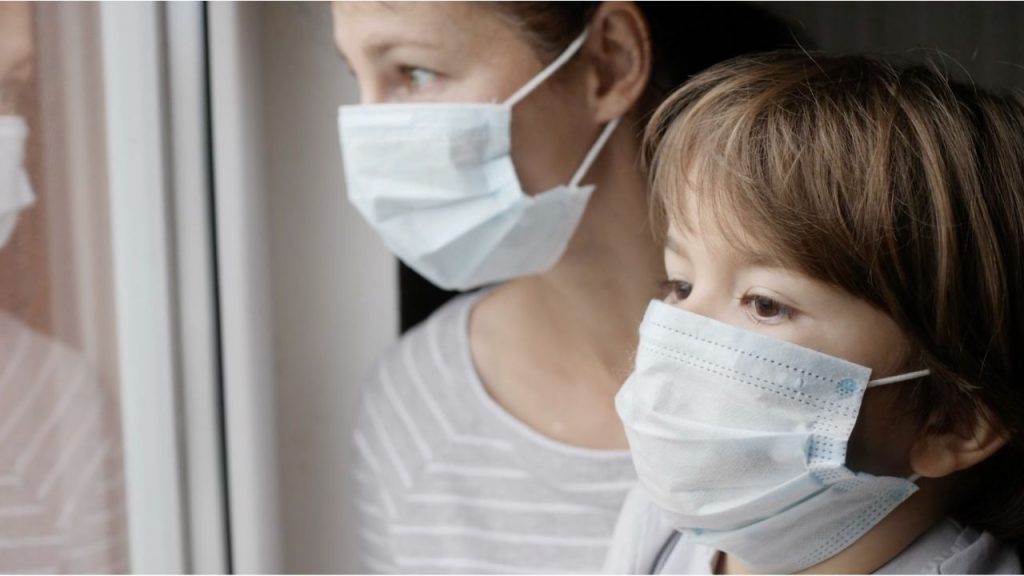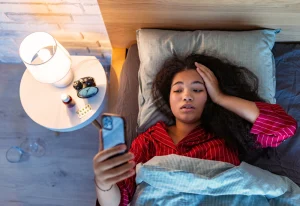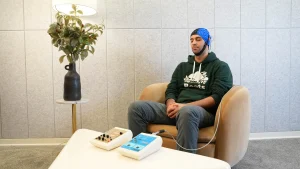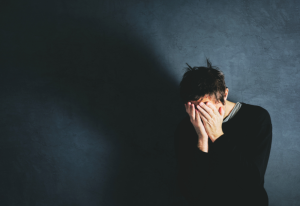Why The COVID-19 Pandemic Could Become a Mental Health Pandemic
At the moment, the entire world is in the throes of the COVID-19 pandemic. Its devastation on the physical bodies of millions of people is bad enough, but experts are fearful that many more millions of people will be victims of its impact on mental health.
According to Dr. Tedros Adhanom Ghebreyesus, the director general of the World Health Organization (WHO), “the impact of the pandemic on people’s mental health is already extremely concerning.”
How Is This Different?
Each year the world faces various strains of influenza. Globally, WHO estimates that influenza kills between 290,000 to 650,000 people per year. The numbers depend upon which strains of influenza predominate in any given year and how effective the vaccine is. As of this writing, the worldwide death toll from the COVID-19 pandemic has claimed 432,000 lives—right about in the middle of an estimated influenza death toll.
So why is the world terrified of COVID-19 and yet sort of “same old, same old” about influenza?
The New Kid On The Block
Prior to the end of 2019, no one knew that COVID-19 even existed. And when it showed up, no one knew how to fight it, much less conquer it.
It was a brand new scary, nasty, and deadly enemy.
Imagine, for a moment, that the Earth is suddenly invaded and attacked by a species of creature we have never encountered before. The creatures don’t look like us—in fact, we can’t even see them, so we don’t even know when they are around us! They could be in our midst for days, even weeks, and we’d never know it, until it’s too late.
There are so many unanswered questions about these creatures:
- How will they treat us?
- Are they friendly?
- Are they harmless?
- Will they destroy us?
- Will we be able to capture and control them?
- Do we have the right weapons to fight them?
- If we conquer them, could they ever come back?
- Can we prevent another attack?
Continuing in our imaginations, we have always had leaders we could look to and trust to keep us safe, to answer the questions we have. But now even the smartest men and women on Earth are baffled. They have never seen anything like these creatures. They have no answers. They put forth a lot of ideas, but often the ideas contradict one another. Besides that, the experts keep changing their minds! We are incredibly confused, and we don’t know what to believe or whom to trust.
And while the experts are working day and night for solutions, the creatures keep on killing us.
Our leaders tell us to stay home, to hide from the creatures, to not go to work or school, to isolate ourselves. They’ve closed all the stores and all the places we like to go to amuse ourselves. They tell us not to associate with each other—you never know, your neighbor, who seems like a nice person, might be secretly harboring the creature…
That’s COVID-19 in a nutshell.
Fallout
It’s no wonder you’re afraid! And you’re not alone, either. In a recent poll, 56% of people said they have experienced at least one of the following symptoms of mental or emotional disturbance since the pandemic began:
- Trouble eating
- Trouble sleeping
- Frequent headaches
- Frequent stomach aches
- Shorter tempers
- Increased domestic violence
- Increased child abuse
- Increased depression, anxiety, distress, and low self esteem
Another study reports that the pandemic could lead to tens of thousands of additional “deaths of despair” from drug and alcohol misuse and suicide due to unemployment, social isolation, and fears about the virus. (Note: If you are feeling suicidal or know of someone who is, please call the National Suicide Prevention Hotline at 1-800-273-8255 now.) Those who had mental health disorders or substance abuse issues before the pandemic are likely to have an increased need for mental health services because of it.
Effects Of Closures and Mandatory Isolation
One of the main problems stemming from the pandemic is the isolation that is imposed upon us to prevent the spread of the virus.
Isolation affects people of all age groups, but older folks—who are especially at risk for dying from the virus—are more likely to experience feelings of loneliness, despair, anxiety, and depression as interactions with family and caregivers are severely limited.
Mental health issues may arise among people of school age due to fewer opportunities to engage with peers. Graduation ceremonies, proms, school attendance and other normal activities are cancelled. Students who live in violent or otherwise unhappy homes used to find school attendance a relief; now that relief is denied them.
Parents are suddenly called upon to be homeschool teachers, as some school districts mandate that learning continue while school buildings are closed. And if these parents work essential jobs outside the home, who will oversee their children, much less teach them, while they are at work?
If you’ve lost your job, you have an entirely new set of worries—paying bills, providing food, and keeping that roof over your head—not to mention trying to avoid the virus.
Front Line Heroes
And what about the people who are caring for the millions with the virus?
Recent research indicates that the rate of professional burnout in hospitals is especially high for young nurses, nurses in hospitals with lower nurse-to-patient ratios, and physicians. The risk of suicide is also high among physicians as they do all they can to heal patients, but are ultimately helpless to prevent tens of thousands of deaths.
In another recent poll, 51% of people who live with a healthcare worker in the household said worry and stress has had a negative impact on them, compared to 44% of people who do not live with a healthcare worker.
Other Vulnerable Populations
In some places, language is a barrier to understanding the virus and getting help. For example, in a shrimp processing plant in Newport, Oregon, USA, 124 cases of COVID-19 were recently detected. Among the afflicted are many Spanish-speaking workers. But also among them are people who belong to an indigenous group from Guatemala who don’t speak Spanish, but instead speak Mam, a language that is largely unwritten. As a consequence, many of the Mam-speakers did not understand that even though they felt all right, they tested positive and needed to stay home for 14 days. So they continued to circulate in the community, potentially spreading the virus, until an English-Mam speaker was located and was able to convince them to isolate themselves.
People of color and other ethnicities also account for a large proportion of the “essential” workforce, which means they are more at risk of contracting COVID-19. In fact, there are a higher proportion of deaths among people of color than among whites. The significant exposure of people of color to COVID-19 is likely to leave a lasting effect on their mental health.
Reasons For Hope
There are reasons for fear and depression during the pandemic. Don’t feel embarrassed or ashamed if you are experiencing some of these issues. But the good news is, there are also reasons for hope.
And hope always overshadows fear and depression!
The pandemic will not last forever; it will end. In the meantime, practice isolation and other safety measures as advised or mandated by your national and local governments—but also keep in touch via social media with your family and friends. Connect with others who may benefit from your friendship and help. Giving service to others will always make you feel better.
Humans are social creatures. We need each other to survive all sorts of life’s problems. The pandemic is but a small moment in the vast scheme of things.
One More Thing…
A vaccination for the coronavirus is in the works. Look at this list of diseases that—not that long ago—used to maim or kill people, but are now prevented with vaccines:
- Polio
- Tetanus
- Hepatitis A
- Hepatitis B
- Influenza
- Rubella (German measles)
- Hib (a type of flu of kids under five; caused brain damage or death)
- Measles
- Pertussis (Whooping Cough)
- Pneumococcal Disease (again, affected primarily children)
- Rotavirus
- Mumps
- Chicken Pox
- Diphtheria
Someday soon, the coronavirus will be on this list too!
No Need To Suffer!
If you are experiencing some mental health symptoms, please contact a mental health treatment provider. During the pandemic, many of us are offering “telehealth” services, which are services provided electronically, such as through an online video chat.
(Again, if you are feeling suicidal or know of someone who is, please call the National Suicide Prevention Hotline at 1-800-273-8255 now.)
Take care of your mental health. We’re in this together, and we’ll get through it together.
Elumind Centres for Brain Excellence is an integrated mental health centre offering solutions that can help you with your mental/brain health needs. To start your journey, book your FREE 15-MINUTE PHONE CONSULTATION. We are here for you.








